13 Leaders with 13 Lessons over 13 Years
May 29th, 2024
For well over a decade, I have been privileged to be a part of the evolutionary story of the Jim Joseph Foundation, which works to inspire connection, meaning, and purpose in Jewish youth and young adults. The Foundation is a learning organization that is both highly invested in research and evaluation regarding grantee-partners and the broader field, and entirely comfortable turning the lens on itself through internal assessments and grantee perception reports.
There are many values I cherish from my years in service and from my interactions with hundreds of thoughtful grantee-partners, colleagues, and friends. After 13 wonderful, productive years, I am moving on from the Foundation—but my covenant to the Jewish community and its people remains steadfast. This is an opportune moment to highlight 13 individuals, and specific lessons they offer, who have guided my path of learning, either knowingly or inadvertently. I hope they inform and inspire your work as they have my own.
Stand Up…Especially When it is Uncomfortable
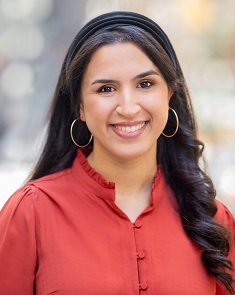 A disciple of Rabbi Jonathan Sacks z”l, Dr. Mijal Bitton speaks up because she is compelled to do so. She is a Latin immigrant, a descendant of Jews expelled from Arab lands, and a proud Jewish American changemaker. Mijal’s research has expanded the definitions and inclusionary practices toward the Sephardi and Mizrahi communities. It is a far easier practice to allow appeasement to supersede conviction, but the results of forsaking one’s ideals can be catastrophic. Mijal was one of the first to raise her voice on college campuses after antisemitism became rampant in 2023 – she then spoke at countless campuses and rallies including the March for Israel in Washington DC with 290,000 people in attendance.
A disciple of Rabbi Jonathan Sacks z”l, Dr. Mijal Bitton speaks up because she is compelled to do so. She is a Latin immigrant, a descendant of Jews expelled from Arab lands, and a proud Jewish American changemaker. Mijal’s research has expanded the definitions and inclusionary practices toward the Sephardi and Mizrahi communities. It is a far easier practice to allow appeasement to supersede conviction, but the results of forsaking one’s ideals can be catastrophic. Mijal was one of the first to raise her voice on college campuses after antisemitism became rampant in 2023 – she then spoke at countless campuses and rallies including the March for Israel in Washington DC with 290,000 people in attendance.
Be Proximate
 Early in my tenure at the Jim Joseph Foundation, I attended a conference in which Bryan Stevenson, founder of the Equal Justice Initiative, delivered the keynote about his experiences with witnessing and advocating for the victims of mass incarceration and racial injustice firsthand. He described this type of advocacy as being proximate and differentiated it from building a case for an issue from a distance.
Early in my tenure at the Jim Joseph Foundation, I attended a conference in which Bryan Stevenson, founder of the Equal Justice Initiative, delivered the keynote about his experiences with witnessing and advocating for the victims of mass incarceration and racial injustice firsthand. He described this type of advocacy as being proximate and differentiated it from building a case for an issue from a distance.
In philanthropy, we are already multiple steps removed from the beneficiary voices of the individuals we purport to serve. If we want to truly understand the experiences of young people, as an example, we need to visit their camps, schools, youth groups, universities, and immersive experiences. If we truly value their opinions, we need to invite them to speak, participate, and drive change.
Find the Gaps and Fill Them
 In the four decades since the founding of the Charles and Lynn Schusterman Family Foundation (now Schusterman Family Philanthropies), one of the most identifiable characteristics of their philanthropy remains the ability to identify and respond to gaps. Lisa Eisen, Co-President of Schusterman Family Philanthropies, has served as an anchor in this arena for the past 20 years, responding to gaps in service learning, Israel education, leadership, and gender equity by being founding funders of Repair the World, The iCenter, Leading Edge, and the Safety Respect Equity Network, respectively. She stewarded each of these and others as either a board member or its chair, leading by example and refining aspirational goals with intention. Different than beneficiaries of funding, philanthropy has the advantage of both time and a bird’s eye view of the broader field, and it is incumbent on us to utilize those.
In the four decades since the founding of the Charles and Lynn Schusterman Family Foundation (now Schusterman Family Philanthropies), one of the most identifiable characteristics of their philanthropy remains the ability to identify and respond to gaps. Lisa Eisen, Co-President of Schusterman Family Philanthropies, has served as an anchor in this arena for the past 20 years, responding to gaps in service learning, Israel education, leadership, and gender equity by being founding funders of Repair the World, The iCenter, Leading Edge, and the Safety Respect Equity Network, respectively. She stewarded each of these and others as either a board member or its chair, leading by example and refining aspirational goals with intention. Different than beneficiaries of funding, philanthropy has the advantage of both time and a bird’s eye view of the broader field, and it is incumbent on us to utilize those.
Learning – Learning – Learning: That is the Secret of Jewish Survival
 The quote above is attributed to Ahad Ha’am, the pen name of Asher Hirsch Ginsberg, the early 20th century leader of Cultural Zionism. This teaching was part of the fabric that Dr. Chip Edelsberg invoked in forming the theory of change of the Jim Joseph Foundation. There is no stage in Jewish history or history itself that is completely the same as what came before it, so we cannot accept that doing the same things over again will yield a different result. Learning and acting upon those learnings are essential if subsequent generations are to survive and thrive. Among his many feats, Chip brought teachings from The Performance Imperative to the Jim Joseph Foundation as well as leadership and grantmaking tools from the secular world into the Jewish nonprofit community. By continuously learning, he led each of us to strive to be greater and more informed.
The quote above is attributed to Ahad Ha’am, the pen name of Asher Hirsch Ginsberg, the early 20th century leader of Cultural Zionism. This teaching was part of the fabric that Dr. Chip Edelsberg invoked in forming the theory of change of the Jim Joseph Foundation. There is no stage in Jewish history or history itself that is completely the same as what came before it, so we cannot accept that doing the same things over again will yield a different result. Learning and acting upon those learnings are essential if subsequent generations are to survive and thrive. Among his many feats, Chip brought teachings from The Performance Imperative to the Jim Joseph Foundation as well as leadership and grantmaking tools from the secular world into the Jewish nonprofit community. By continuously learning, he led each of us to strive to be greater and more informed.
You Cannot Just Communicate with the CEO
In Episode 1 of Michael Lewis’ Against the Rules podcast, he tells the story of a woman named Sue Henderson who had solutions for the medical billing industry … but she was six levels down in her organization in a windowless basement of a hospital. Sue developed nuanced expertise particularly around the Medicare and health insurance system that enabled a level of efficiency that singularly made the hospital successful. But few in the building appreciated the excellence that she brought or even knew of her existence.
When we speak only to the C-Suite of an organization, we can miss the most critical elements of day-to-day interaction that may not be otherwise articulated. In real terms, we miss the individuals that define the organization’s achievements if they are not part of the senior leadership. It is incumbent on us to dig deeper to find the source.
Mentorship Matters
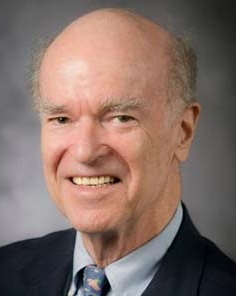 For more than 30 years, I have been privileged to be mentored by Professor Joel Fleishman, Director of the Heyman Center for Ethics at Duke University and author of the foremost compendium on foundations and philanthropy. I am sure there are tens if not hundreds of others who feel similarly about the role that Joel has played in their lives. In his eyes, mentorship is not about a single avenue to success or about being in total alignment with your mentee. Rather, it is about being available, a consummate listener, and forthright about what is possible and right for the person in the moment.
For more than 30 years, I have been privileged to be mentored by Professor Joel Fleishman, Director of the Heyman Center for Ethics at Duke University and author of the foremost compendium on foundations and philanthropy. I am sure there are tens if not hundreds of others who feel similarly about the role that Joel has played in their lives. In his eyes, mentorship is not about a single avenue to success or about being in total alignment with your mentee. Rather, it is about being available, a consummate listener, and forthright about what is possible and right for the person in the moment.
His example led me to take on mentees over the past decade and provide pathways for success to others in similar fields. We cannot develop or maintain a pipeline of stellar nonprofit and philanthropic professionals without role models and mentors who support professionals on their journey.
Acknowledge Those Who Came Before Us
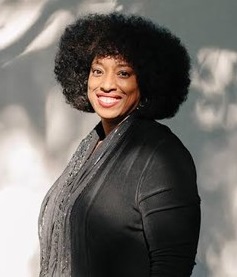 There is a phrase called Columbusing that is used to describe the appropriation of an idea or practice that has been in existence previously. This idea is often employed with the best of intentions but overlooks the pioneering efforts that took place long before the ideas reached the mainstream. One of my earlier Foundation memories was participating in a workshop facilitated by Yavilah McCoy, an innovator of the Jewish diversity and equity movement who has dedicated much of her professional career to amplifying the Jews of Color community. Yavilah reminded me and others that new research can always be complemented with historical documentation and that it is important to be inclusive of those texts and individuals.
There is a phrase called Columbusing that is used to describe the appropriation of an idea or practice that has been in existence previously. This idea is often employed with the best of intentions but overlooks the pioneering efforts that took place long before the ideas reached the mainstream. One of my earlier Foundation memories was participating in a workshop facilitated by Yavilah McCoy, an innovator of the Jewish diversity and equity movement who has dedicated much of her professional career to amplifying the Jews of Color community. Yavilah reminded me and others that new research can always be complemented with historical documentation and that it is important to be inclusive of those texts and individuals.
Speak to Your Audience
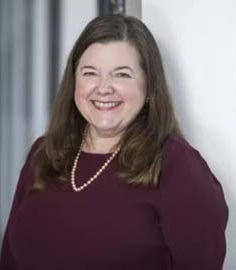 Prior to my tenure at the Jim Joseph Foundation, I benefitted from the tutelage of Dr. Kristy Towry, chaired professor of accounting at Emory’s Goizueta Business School. I learned that in the normally dry and lifeless budgeting process, managerial accounting allows one to incorporate psychology and other social sciences to speak to your audience. Activity-Based Costing, connecting the salaries and ancillary costs of performing a function with that budgeted component, is one highly informative method of illustrating this process. Being an effective steward of relational grantmaking is not about evoking fear of punitive actions. It is instead encouraging partners to showcase accurate strengths and challenges without fear of reprisal. Kristy’s teaching helped me tell the story of relational grantmaking on behalf of the Foundation through a series of spreadsheets and videos in ways that would not have otherwise been possible.
Prior to my tenure at the Jim Joseph Foundation, I benefitted from the tutelage of Dr. Kristy Towry, chaired professor of accounting at Emory’s Goizueta Business School. I learned that in the normally dry and lifeless budgeting process, managerial accounting allows one to incorporate psychology and other social sciences to speak to your audience. Activity-Based Costing, connecting the salaries and ancillary costs of performing a function with that budgeted component, is one highly informative method of illustrating this process. Being an effective steward of relational grantmaking is not about evoking fear of punitive actions. It is instead encouraging partners to showcase accurate strengths and challenges without fear of reprisal. Kristy’s teaching helped me tell the story of relational grantmaking on behalf of the Foundation through a series of spreadsheets and videos in ways that would not have otherwise been possible.
Live Your Values
 There are few leaders I have encountered who are both soft-spoken and strong-hearted. Rabbi Yossi Prager epitomizes these characteristics and more. More than anything else, Yossi teaches me and the rest of the world how to be a mensch in grantmaking. He led the largest Jewish education foundation in the country on a magnanimous spenddown, which effectively put him out of a job while exponentially enhancing the field. He ensured that each member of his team was cared for with amity, support, and consideration. And he put the grantee partners with whom he worked on a pedestal, reversing the traditional polarity of the funder/grantee relationship. He is truly a values-driven leader.
There are few leaders I have encountered who are both soft-spoken and strong-hearted. Rabbi Yossi Prager epitomizes these characteristics and more. More than anything else, Yossi teaches me and the rest of the world how to be a mensch in grantmaking. He led the largest Jewish education foundation in the country on a magnanimous spenddown, which effectively put him out of a job while exponentially enhancing the field. He ensured that each member of his team was cared for with amity, support, and consideration. And he put the grantee partners with whom he worked on a pedestal, reversing the traditional polarity of the funder/grantee relationship. He is truly a values-driven leader.
Be Aware of the Dreams of Others
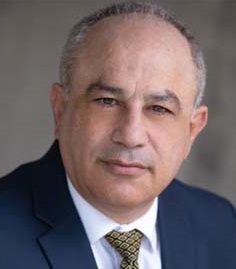 Few experiences in my life have been as impactful as the Dreams of Others Seminar facilitated by the Jewish Agency’s Makom in January 2023 in partnership with Mohammad Darawshe, Hartman Fellow and Senior Strategy Director at Givat Haviva. Mohammad was a co-creator on this pilot seminar that included education directors and leaders from many of the most impactful organizations in the Jewish world. We traversed Jewish communities and the adjacent Arab villages, West Bank settlements and Palestinian towns, border communities and large metropolitan communities. And we were able to see each through different lenses. This was not about changing minds but about having the ability to accept a different perspective.
Few experiences in my life have been as impactful as the Dreams of Others Seminar facilitated by the Jewish Agency’s Makom in January 2023 in partnership with Mohammad Darawshe, Hartman Fellow and Senior Strategy Director at Givat Haviva. Mohammad was a co-creator on this pilot seminar that included education directors and leaders from many of the most impactful organizations in the Jewish world. We traversed Jewish communities and the adjacent Arab villages, West Bank settlements and Palestinian towns, border communities and large metropolitan communities. And we were able to see each through different lenses. This was not about changing minds but about having the ability to accept a different perspective.
Since October 7th, our WhatsApp group from that trip continued. We lost one of the leaders in civil society from Ofakim who met with our entire group in his home. Mohammad lost one of his nephews who was a first responder at the Nova Festival. One member of the group is still waiting for a loved one who is abducted in Gaza. We continue to weep together.
Prepare Yourself to be Unprepared
 There are few who have faced storm upon storm of upheaval and uncertainty as Eric Fingerhut, President of Jewish Federations of North America. He confronted boycotts directed at Israel in Congress, on campus, and in the broader community. He addressed systemic security concerns following the most antisemitic events in US history. He responded to poverty and some of the most horrific natural disasters and their effects on our Jewish community. And he dealt directly with the loss and destruction after October 7th. In each of these instances and in others, he led with thoughtfulness and inclusivity. There has not been an initiative, whether it is a bill in the legislature or a new initiative in the Federation system, that Eric has undertaken without significant reliance on partnership.
There are few who have faced storm upon storm of upheaval and uncertainty as Eric Fingerhut, President of Jewish Federations of North America. He confronted boycotts directed at Israel in Congress, on campus, and in the broader community. He addressed systemic security concerns following the most antisemitic events in US history. He responded to poverty and some of the most horrific natural disasters and their effects on our Jewish community. And he dealt directly with the loss and destruction after October 7th. In each of these instances and in others, he led with thoughtfulness and inclusivity. There has not been an initiative, whether it is a bill in the legislature or a new initiative in the Federation system, that Eric has undertaken without significant reliance on partnership.
From him, I’ve learned that the best response to unpredictability is cooperation. Alliances do not have to be built beforehand, but trust does.
It is Not Just About Your Work – It is about the Ecosystem
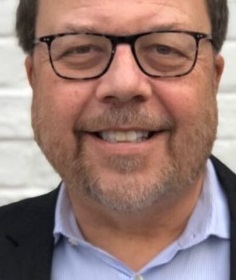 When I first met Jay Kaiman nearly 25 years ago, he shared how when he first moved to town in Atlanta to run a Jewish agency, he made a point to meet with other Jewish professional leaders in the community to understand their work and to convey his own organizational charge. Now on the funding side, his teachings have even greater meaning as our roles are not only dedicated to philanthropic stewardship but also to serve as connectors, interpreters, facilitators, and thought partners. He sees the community as his own and is personally vested in the success of the whole.
When I first met Jay Kaiman nearly 25 years ago, he shared how when he first moved to town in Atlanta to run a Jewish agency, he made a point to meet with other Jewish professional leaders in the community to understand their work and to convey his own organizational charge. Now on the funding side, his teachings have even greater meaning as our roles are not only dedicated to philanthropic stewardship but also to serve as connectors, interpreters, facilitators, and thought partners. He sees the community as his own and is personally vested in the success of the whole.
Give the Benefit of the Doubt
 I have learned countless lessons from my colleague and friend, Barry Finestone, but the one that stands out most is his approach to culture. He insists that without precondition, we should give our colleagues, our grantee partners, and others in the field the benefit of the doubt when approaching our work, assuming the best of intentions of others in our orbit. This embodies an ethos of trust-based philanthropy that creates an overall culture of respect and mitigates the power dynamic that is often at play between the donor and recipient. And the only way to exact this value set is to invest in an outsized way in cultivating and sustaining exceptional leaders and educators. The philanthropic world could be much more about collective and collaborative success if more employed this philosophy.
I have learned countless lessons from my colleague and friend, Barry Finestone, but the one that stands out most is his approach to culture. He insists that without precondition, we should give our colleagues, our grantee partners, and others in the field the benefit of the doubt when approaching our work, assuming the best of intentions of others in our orbit. This embodies an ethos of trust-based philanthropy that creates an overall culture of respect and mitigates the power dynamic that is often at play between the donor and recipient. And the only way to exact this value set is to invest in an outsized way in cultivating and sustaining exceptional leaders and educators. The philanthropic world could be much more about collective and collaborative success if more employed this philosophy.
________________
Know Before Whom You Stand – דע לפני מי אתה עומד
The phrase, “know before whom you stand,” generally sits outside a synagogue or in a sanctuary referring to the majesty of G-d in the house of worship that we should revere with dignity. I see the phrase as even more ubiquitous. When you enter the Jim Joseph Foundation, there is a single framed photograph overlooking the boardroom table of an unassuming man who established a great fortune, virtually all of which was dedicated to Jewish education.
of worship that we should revere with dignity. I see the phrase as even more ubiquitous. When you enter the Jim Joseph Foundation, there is a single framed photograph overlooking the boardroom table of an unassuming man who established a great fortune, virtually all of which was dedicated to Jewish education.
When Jim Joseph z”l passed on December 19, 2003, there was no extensive obituary in the New York Times. There was little fanfare across the secular and Jewish worlds… in part because few knew this accomplished real estate titan and philanthropist who operated in relative obscurity. I unfortunately was never blessed to meet the Foundation’s benefactor, but I have learned considerably from the thoughtfulness, intentionality, and humility of his daughter, Dvora, and son, Josh. Even in his absence, he has taught me how to acknowledge and employ these attributes, and for that I am forever grateful.
—
I am thankful to these individuals for their insights and the values they both taught and modeled. They will inspire my work for years to come.
Steven Green most recently served as a Senior Program Officer at the Jim Joseph Foundation. He can be reached at [email protected]